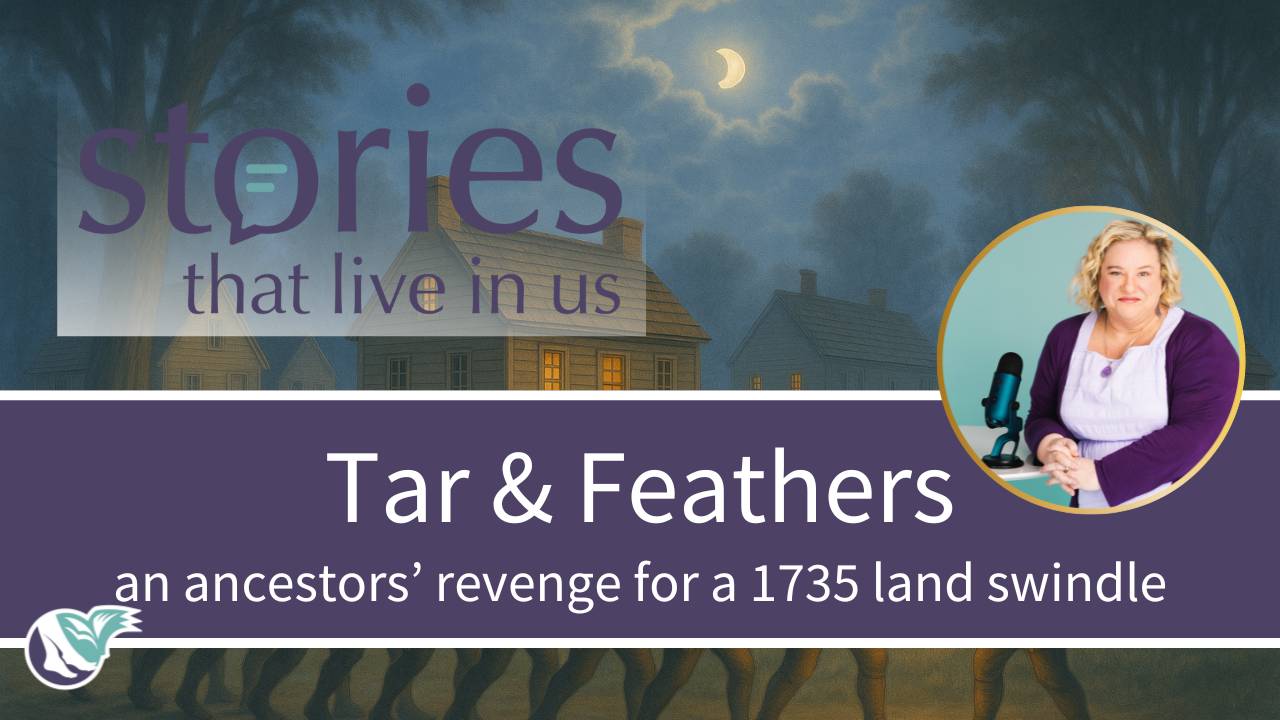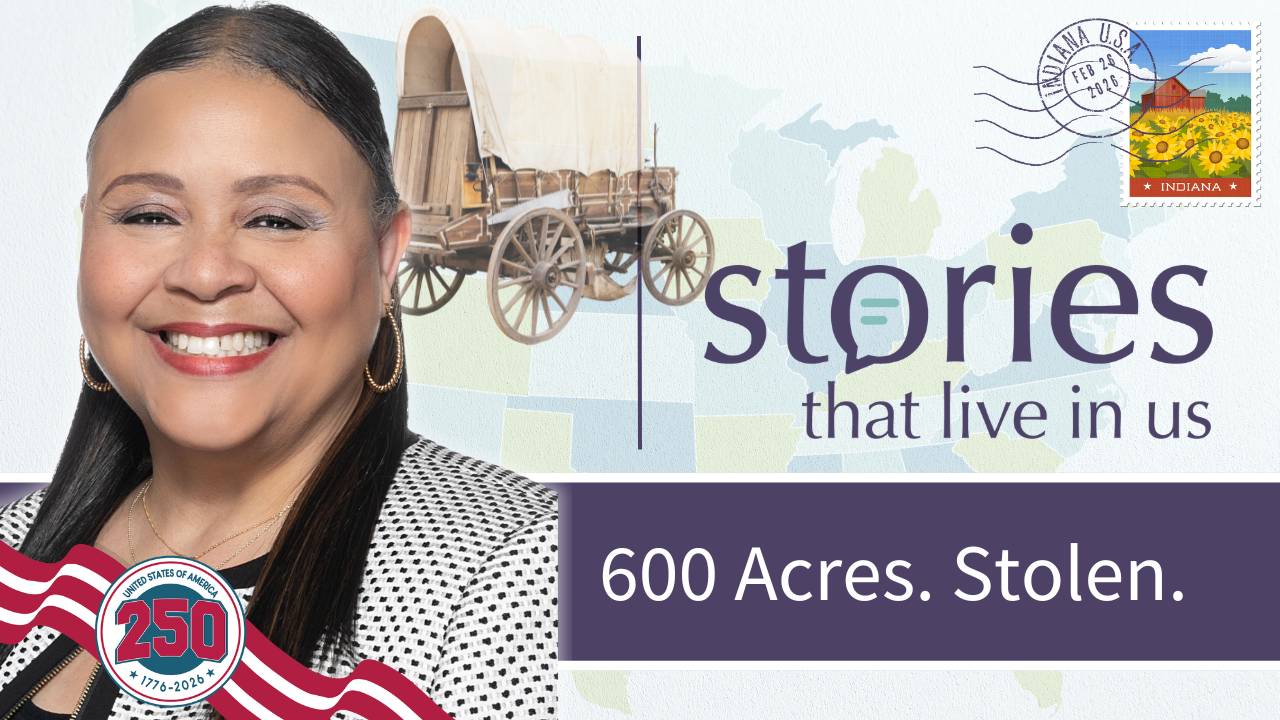Even in the Face of Injustice: What My Ancestors' Darkest Hour Taught Me About Resilience
May 29, 2025
Have you ever discovered a family story that kept you awake all night? Not because it was heartwarming or inspiring, but because it forced you to confront an uncomfortable truth about your ancestors' choices – and your own?
That's exactly what happened to me during a recent Sunday evening family history session with my dad. What started as our usual AncestryDNA match puzzle-solving turned into a deep dive that revealed a shocking story about corruption, injustice, and a decision my ancestors made that still makes me wince. But sometimes the stories that make us most uncomfortable are the ones that teach us the most about resilience.
The Discovery That Changed Everything
Picture this: It's past midnight, I'm staring at colonial court records on my computer screen, and I'm realizing that my 7x great-grandfather John Park and his brother-in-law Thomas Smith weren't just innocent victims of government corruption – they were the guys who tarred and feathered two innocent men in 1735 New Jersey.
"Smith and Park and about 10 of their friends snuck into those homes through the woods. Behind them they had prepared a vat of melted tar and a barrel of chicken and turkey feathers, and they broke into those homes and they took those two innocent men who had been put into their homes by the government and they tarred and feathered them."
This wasn't the heartwarming ancestor story I was expecting to find. But as I learned more about the decades of corruption and land swindles that led to this moment, I began to understand something profound about resilience, choice, and what it means to face injustice.
The Whole Story
If you haven't already heard the full story of John Park, Thomas Smith, and the land swindle that pushed them over the edge, take a moment to listen in:
Prefer audio only? Click here to listen on your favorite podcast app.
🎧 Listen to the full episode to discover:
- How a simple DNA match led to uncovering a story of colonial corruption
- The religious persecution that drove Quaker families from England to New Jersey
- Why 50 men signed a compact to fight for land they'd already purchased
- The tar and feather incident that kept me awake all night
- What this 300-year-old story teaches us about responding to injustice today
- Why even imperfect ancestor stories are important to preserve and share
The Power of One Story
Here's what hit me hardest about this discovery: my ancestors weren't perfect. (Not that I expected them to be but it’s always complicated to face that head on.) In fact, in this moment, they made a choice that harmed innocent people. But their story doesn't end there. After fleeing New Jersey, they rebuilt their lives in the Shenandoah Valley, then North Carolina, continuing to raise families and practice their faith despite facing the Regulator Wars and eventually the American Revolution.
What breaks my heart most about this story isn't just the tar and feathers incident itself, but imagining what it did to their community.
"I imagine that this probably did a lot of damage in the community as people were picking one side or the other, as some people must have felt that their cause was just and right and others felt that their cause was trying to keep the peace and maintain order. Like there's so much of a parallel to what I see happening in our world today and as I've imagined that community and what was happening there, it breaks my heart to think about the way some of these families may have been torn apart."
The lesson isn't that their violence was justified – it wasn't. The lesson is that people can survive horrible circumstances, make terrible choices, and still find ways to move forward and create moments of peace and prosperity. They show us that resilience isn't about being perfect; it's about continuing to choose hope even when the world feels like it's falling apart.
"People have survived horrible things and they have created moments of peace and prosperity in the midst of that. They have continued to have families, they have continued to practice their faith, they have continued to move forward the best way that they know how."
Your Story
As I think about our current political climate, where people on all sides are saying this could be "the end of our country," I'm reminded that every generation faces moments that feel like the end of the world. Your ancestors lived through wars, depressions, pandemics, and political upheaval that probably felt just as overwhelming as what we're experiencing today.
What stories of resilience are hidden in your family tree? What injustices did your ancestors face, and how did they respond? More importantly, what can their stories – both their triumphs and their failures – teach you about making better choices in difficult times?
Story Seeds 🌱
Plant these conversation starters and watch your family stories grow.
- For Parents/Grandparents: "Tell me about a time when you felt like the world was falling apart around you. How did you keep going, and what helped you maintain hope?"
- For Older Relatives: "What stories do you remember about our family during difficult times in history – the Depression, World War II, civil rights era? How did they respond to uncertainty and injustice?"
- For Anyone: "Have you ever heard family stories about ancestors who had to make really difficult choices? What do you think you would have done in their situation?"
- For Family Members: "When you think about the challenges our family has faced over the generations, what qualities do you think helped us survive and thrive?"
Story Sparks 🔑
Unlock your family's hidden stories with these research techniques.
- Clean up old family tree mistakes systematically. When you find conflicting dates or impossible relationships in your tree, don't just ignore them. Investigate. These inconsistencies often lead to interesting discoveries about your family's real story.
- Use courthouse and local historical society records to understand your ancestors' communities. Do internet searches for "[County Name] historical society" and "[County Name] courthouse records" to find documents that reveal the political and social context your ancestors lived in.
- Create a timeline of major historical events during your ancestors' lifetimes. Curiosity about what was happening in their world can help explain decisions that might otherwise seem puzzling. Write up how you think those events affected their choices and add it as a story to their profile gallery in your tree. Remember to tag any family members mentioned.
- Follow migration patterns with purpose. When you see ancestors moving from place to place, research why entire communities might have relocated together. Often there are larger historical forces at play that could have affected multiple families in your tree.
The most powerful family stories aren't always the ones that make us proud. Sometimes the stories that challenge us, that force us to grapple with our ancestors' flawed humanity, are the ones that teach us the most about resilience, forgiveness, and the choice to be better than our circumstances.
My ancestors made a choice in 1735 that I wish they hadn't made. But they also made choices to keep their families together, to continue practicing their faith, and to rebuild their lives again and again in the face of corruption and upheaval. That's the legacy I want to carry forward – not the tar and feathers, but the determination to create something better for the next generation.
Ready to discover what stories of resilience are hiding in your own family tree? Subscribe to Stories That Live In Us wherever you get your podcasts. And if this episode made you think about your own ancestors' complex stories, please leave us a rating and review – it helps other family story seekers find us too.
© 2025 Crista Cowan. All rights reserved.







